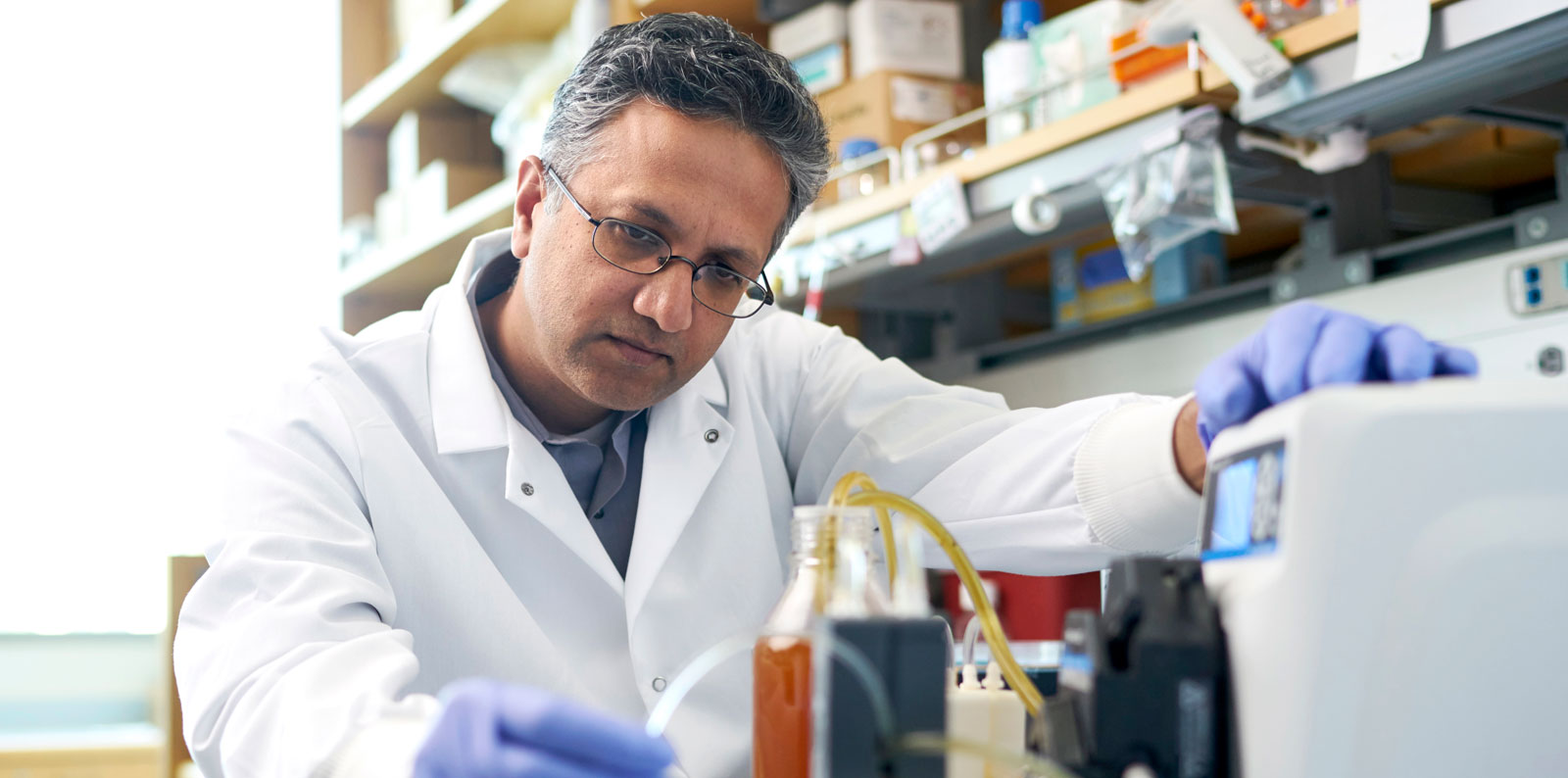NIH Awards Shuvo Roy Three-Year $2.4M Grant to Develop Bioartificial Pancreas for Type 1 Diabetes

The National Institute of Biomedical Imaging and Bioengineering (NIBIB), one of the National Institutes of Health, has awarded bioengineering professor Shuvo Roy, PhD, a three-year, $2.4 million grant to develop a bioartificial pancreas for treatment of Type 1 Diabetes. The project is a collaboration between the Department of Surgery, Department of Bioengineering & Therapeutic Sciences, and Diabetes Center at UCSF.
Co-investigators include:
- Tejal Desai, PhD - Department of Bioengineering & Therapeutic Sciences
- Matthias Hebrok, PhD - Diabetes Center at UCSF
- Andrew Posselt, MD, PhD – Department of Surgery
- Qizhi Tang, PhD – Department of Surgery
- Shant Vartanian, MD – Department of Surgery
Type 1 Diabetes affects nearly three million people in the United States and 24 million worldwide. Current treatment methods for the autoimmune disease—insulin therapy or pancreas transplant—are severely limited and can lead to serious complications. Dr. Roy’s research project focuses on using silicon nanopore membranes (SNMs) as an immunoisolation barrier to protect stem-cell derived insulin producing cells from pro-inflammatory attack, while ensuring physiologic oxygenation and glucose-insulin kinetics. The team’s long-term goal is to develop a full-scale implantable bioartificial pancreas.
In addition to this project, Dr. Roy leads several interdisciplinary initiatives at UCSF: Surgical Innovations, Pediatric Device Consortium, Biodevice Innovation Pathway, and The Kidney Project.
